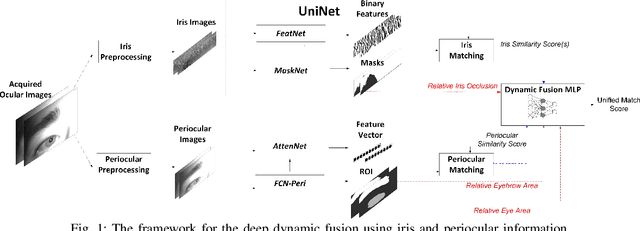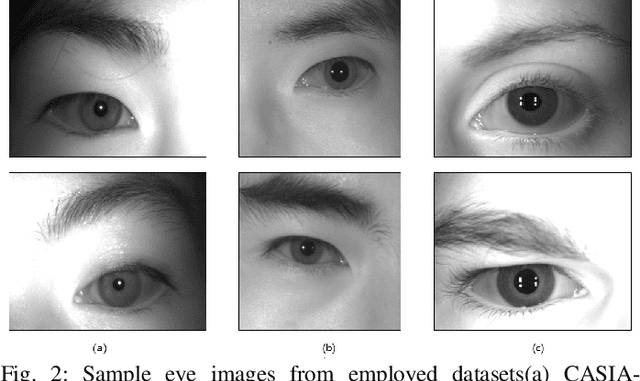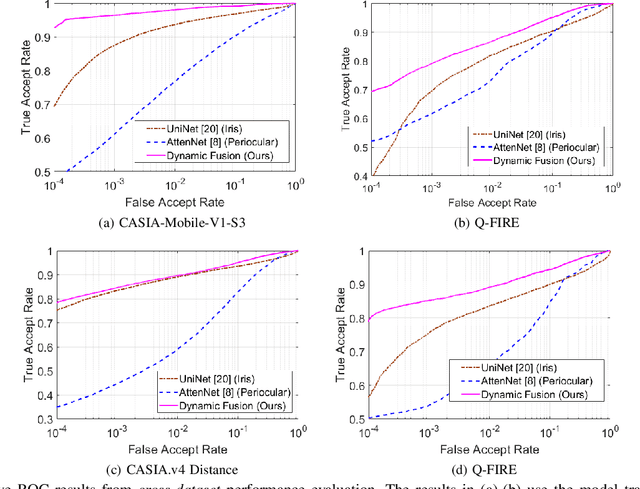Segmentation-Aware and Adaptive Iris Recognition
Paper and Code
Dec 31, 2019



Iris recognition has emerged as one of the most accurate and convenient biometric for the human identification and has been increasingly employed in a wide range of e-security applications. The quality of iris images acquired at-a-distance or under less constrained imaging environments is known to degrade the iris matching accuracy. The periocular information is inherently embedded in such iris images and can be exploited to assist in the iris recognition under such non-ideal scenarios. Our analysis of such iris templates also indicates significant degradation and reduction in the region of interest, where the iris recognition can benefit from a similarity distance that can consider importance of different binary bits, instead of the direct use of Hamming distance in the literature. Periocular information can be dynamically reinforced, by incorporating the differences in the effective area of available iris regions, for more accurate iris recognition. This paper presents such a segmentation-assisted adaptive framework for more accurate less-constrained iris recognition. The effectiveness of this framework is evaluated on three publicly available iris databases using within-dataset and cross-dataset performance evaluation and validates the merit of the proposed iris recognition framework.
 Add to Chrome
Add to Chrome Add to Firefox
Add to Firefox Add to Edge
Add to Edge